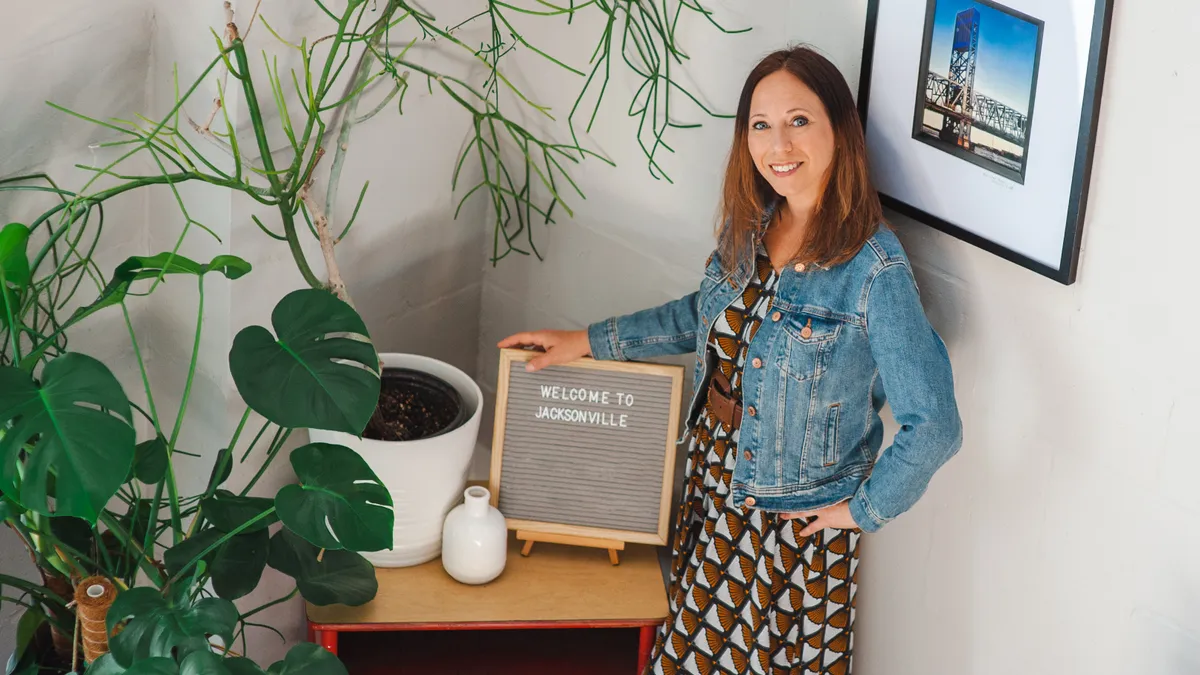Dive Brief:
- U.S.-based teachers who share their homes through Airbnb will earn special privileges and extra income, according to a new partnership announced today between the online home-sharing marketplace and the National Education Association, the country's largest teacher's union.
- Teachers who are NEA members and are first-time Airbnb hosts will receive a one-time $100 stipend, a hosting curriculum written by and for educators, and a 10% discount on Airbnb Experiences, which are in-person and online adventures and activities, according to Christopher Nulty, director of corporate communications and public affairs at Airbnb.
- Amid a national teacher shortage crisis, as well as a movement to improve historic low wages for teachers, the Airbnb-NEA partnership aims to empower teachers financially and encourage their curiosity through travel, said NEA and Airbnb leaders. The move comes as school districts around the country are making efforts to retain teachers and increase pay.
Dive Insight:
The Airbnb-NEA partnership is unique, marking the first time the 15-year-old home-sharing company has worked closely with a specific group of home hosts, Nulty said.
"This is a really special population of people," Nulty said. "When you sort of step back and think about it, it makes sense that teachers would be great hosts."
For one thing, Nulty said, many teachers have summers off when they might want to travel and could rent out their homes while they're away.
Hosts can also rent rooms in their homes while they are there through Airbnb. Teachers and anyone else have options to share their homes through other apps like VRBO and Homestay.
One in five Airbnb hosts who are otherwise employed are either educators or healthcare workers, according to data the company collected through hosts' self-reported online profiles. In 2020, educators who hosted through Airbnb collectively earned more than $180 million, including more than $61 million over the summer months, Nulty said.
During the 2017-18 school year, 17.8% of teachers received income from a non-salaried source outside of the school system, according to data from the National Center for Education Statistics. In the summer of 2015, 16% of teachers earned income from a nonschool job, earning an average of $4,060, NCES reports.
Many teachers take on a second job to support themselves financially, a 2018 NEA article said. A statement from Leona Linder, chief marketing officer for NEA Member Benefits, said the NEA-Airbnb partnership will give educators tools to "turn their home into a tool for connection and financial empowerment."
Money wasn't on Marie Escriba's mind when she rented a bedroom for a week in an apartment in Gainesville, Florida, in 2011 as she was completing her master's in art education. She found that she enjoyed the experience, especially getting to know her temporary roommates.
When Escriba, who was then teaching art in the public library system, went back home to Jacksonville, Florida, she began hosting visitors at her house. The extra income she earned — $20,000 a year — was a substantial boost to her salary of $30,000 and allowed her to make several renovations to her single-family home.
Today, she's an elementary art teacher in Jacksonville's Duval County Public Schools earning $42,000 a year. She's an Airbnb co-host, which means she helps other hosts with properties manage their home shares. She's also earned Airbnb's superhost status for her responsiveness to guests' needs and positive reviews.
"I personally think that if people are outgoing, extrovert, social, they're going to love hosting inside their house," Escriba said.
She earned $7,800 last year from co-hosting and other stipends for referrals, she said. She uses the extra income to save for retirement and for travel — she's going to Montreal and Nova Scotia in Canada this summer.
"I'm kind of like traveling for free," Escriba said. "It's kind of nice to be able to do that."







 Dive Awards
Dive Awards






